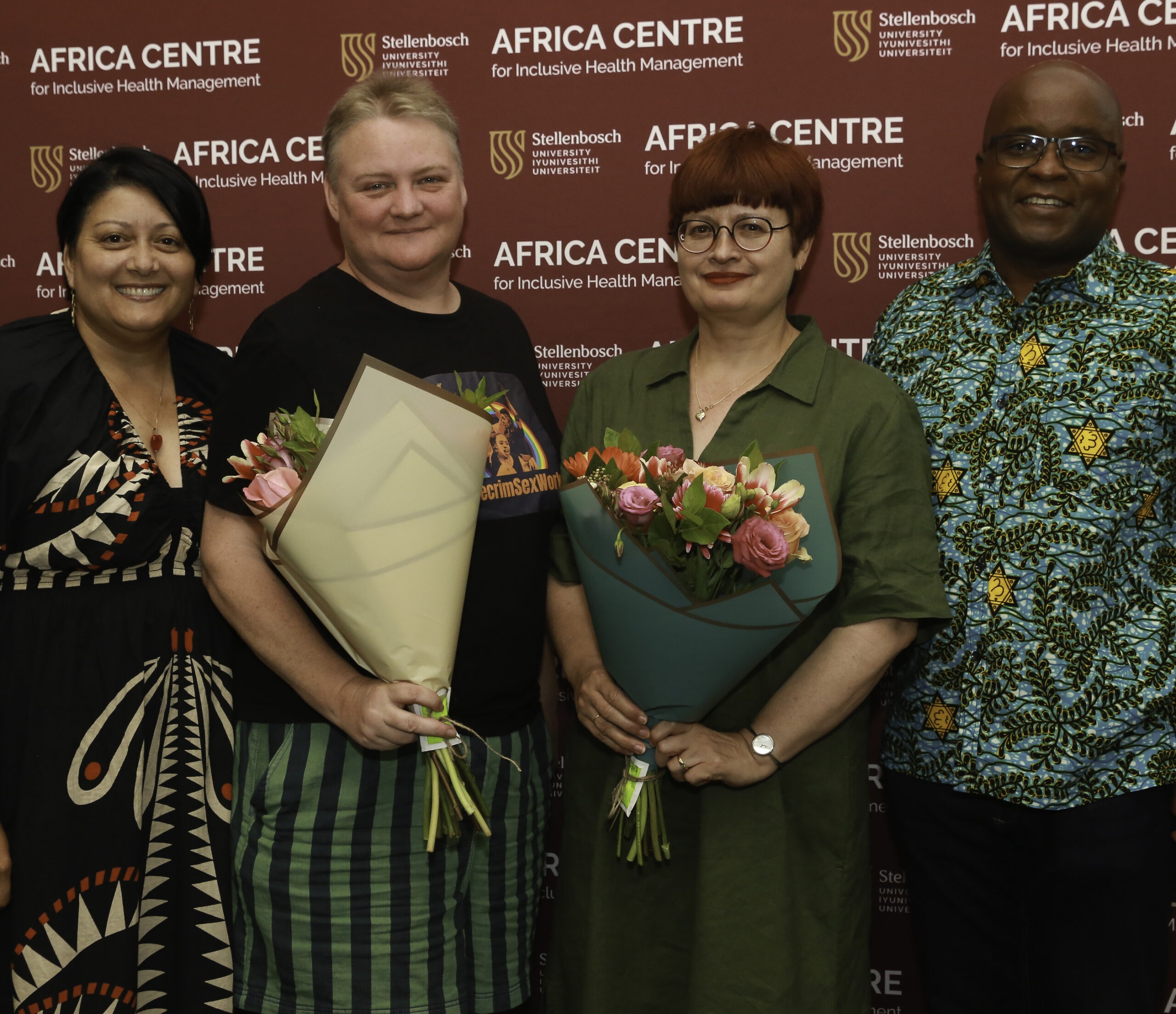
Rene Sparks reignited awareness about sexuality and gender inequality while Emily Craven advocated for decriminalising sex work. Mia Malan provided enlightening information about climate change and the spread of HIV/Aids. Here they are pictured with the Africa Centre’s director, Dr Munya Saruchera.
About the Africa Centre’s PgDip summer school
The summer school is the annual kick-off event for our flagship programme, the Postgraduate Diploma in HIV/Aids Management. From 3 to 7 February, we hosted the first face-to-face PgDip summer school since 2020. Every day was packed with insightful presentations relating to the PgDip modules and topics about the various dimensions of inclusive health management. This blog series provides an overview of the sessions and we hope the insights encourage prospective students to sign up for 2026. Find out more about the programme here.
We recently rebranded from the Africa Centre for HIV/Aids Management to the Africa Centre for Inclusive Health Management to reflect broadening our strategic focus and goals. HIV/Aids still demands attention and effective leadership; its impact can however not be addressed in isolation. In line with this shift to an integrated approach and the broader social, economic, commercial, structural and systemic factors that influence health outcomes, several summer school sessions were dedicated to inclusive health management.
Social and commercial determinants of health: implications for health policy, management & innovation – Dean Peacock
Dean Peacock, advocate for health, human rights and gender equality, set the scene for this year’s summer school with his keynote address on the social and commercial determinants of health. Using several case studies, he illustrated how people’s health is affected by factors such as housing, race, gender, access to education and working conditions, not only genetics or behavioural choices.
“Whether people are healthy or not is largely determined by their social, economic and environmental circumstances, together with clinical care,” Peacock explained. “The conditions in which people are born, grow, live, work and age are the social determinants of health, and these are a reflection of the distribution of money, power and resources at global, national and local levels.”
In this regard, commercial industries and practices have an enormous impact on public health, especially tobacco, alcohol, food, guns and fossil fuels. This presents an opportunity to challenge the dominant paradigm in public health and to alter the social and material conditions that shape people’s health and life outcomes. Peacock highlighted the three overarching recommendations from the final report of the WHO’s Commission on Social Determinants of Health:
- Improve daily living conditions.
- Tackle the inequitable distribution of power, money and resources.
- Measure and understand the problem, raise awareness about the social determinants of health and assess the impact of action.
The intricate picture he painted showed that all stakeholders in public health have their work cut out for them. See what the summer school’s other expert speakers had to say about different inputs to inclusive health management.
Click on specific icons to read the relevant recaps:
Community involvement is key – Dr Rolene Wagner & Dr Evelyn Thsehla
Community involvement is key – Dr Rolene Wagner
Sharing lessons from a turnaround at the Eastern Cape Department of Health, Dr Rolene Wagner illustrated the importance of effective community involvement towards inclusive health management and leadership. Socioeconomic determinants of health play a prominent role in the province’s health sector: with less than 10% of people having medical aid and a high unemployment rate, there is a high dependency on public health services.
Inequitable access to healthcare (largely due to the prevalence of rural populations), service delivery backlogs and quality of care were some of the strategic challenges the department faced. The turnaround strategy’s objectives included service delivery optimisation and compassionate, quality healthcare (underpinned by financial sustainability). With these objectives, community involvement was key. “Optimising service delivery not only required internal consultation, but also external consultations with affected communities,” Wagner explained.
In addition, ensuring a positive healthcare experience for patients required addressing the social determinants of health. In this regard, Wagner emphasised a greater focus on a whole-of-society approach and scaling up partnerships with local government, traditional leaders and strategic partners. Strategic community partnerships continue to play a role in the department’s current initiatives. These include a programme to reduce teenage pregnancies, with a steady decline in the number of girls aged 10-19 giving birth between 2019 and 2024. Overall, Wagner highlighted that the achievement of health outputs and outcomes is directly determined by the quantity and quality of the inputs and the prevailing political, socioeconomic and technological context.
Economic challenges of inclusive health management – Dr Evelyn Thsehla & Thoko Madonko
Economic challenges of inclusive health management – Dr Evelyn Thsehla & Thoko Madonko
A more integrated approach to health management that considers the social and commercial determinants of health naturally has an economic impact. Dr Evelyn Thsehla, research director at the SAMRC/Wits Centre for Health Economic and Decision Science (PRICELESS SA), shed some light on the role of health economics towards inclusive health management. At its core, health economics is about allocating resources in the health system in a way that maximises health benefits, while considering changes in health needs and in available resources.
A thorough cost analysis is vital for:
- Estimating the financial impact of illnesses or new interventions/programmes to inform budget negotiations
- Selecting priorities according to available funds and promoting support for selected programmes
- Facilitating dialogue on the affordability of interventions
- Strengthening accountability and avoiding duplication of activities
Using several case studies relating to costing health services, Thsehla illustrated how the choice to invest in inclusive health is often made in the complex contexts of affordability, feasibility, financial risk protection, political and economic realities, health impact and equity, requiring a balanced view.
Zooming in on South Africa’s public health system, Thoko Madonko from the Southern Centre for Inequality Studies at Wits University discussed the implication of austerity budgeting on inclusive health management in South Africa. The government budget for healthcare spending has not been keeping pace with the population served, impacting the quality of health services. More budget cuts are expected over the next five years as the government continues to fight a budget deficit. South Africa therefore faces the challenge of universal health coverage in a context of stagnating growth as well as rising healthcare costs: “This means that both equity and efficiency problems need to be tackled head-on in the process of creating an integrated national health system.”
According to Madonko, spending reviews and “low hanging fruit” efficiency gains are unlikely to make much difference to fundamental resource constraints. “Complex reforms are necessary to yield efficiency and help contain rising health costs, while also creating stronger public institutions that can progressively achieve equity on a sustainable basis,” she explained. This will require deep reform of intergovernmental fiscal relations between spheres of government and public health facilities.
The gender lens – Rene Sparks & Emily Craven
The gender lens – Rene Sparks & Emily Craven
Sexuality and gender, and the intersection between these concepts, not only shape personal identities and aspirations but also translate into lived experiences and bring forth systemic challenges. According to nurse and health equity advocate Rene Sparks, gender and sexuality influence vulnerability in the context of public health, especially in relation to access to healthcare, social justice and the rights of key populations.
She illustrated why it is critical to consider gender and sexuality in inclusive health management and practice, to ensure that healthcare systems address the needs of diverse populations. “An intersectional approach recognises that gender identity and sexual orientation shape access to care, health outcomes and experiences of discrimination and othering. By embedding gender and sexuality into inclusive health management, we create a more just, effective and responsive healthcare system that prioritises dignity, access and wellbeing for all.”
In a related vein, Emily Craven, director of the Sex Workers Education & Advocacy Taskforce (SWEAT), explained how the criminalisation of sex workers is the foundation of extensive stigma and discrimination against the industry. In South Africa, it is a crime to sell and buy sex. There are also a complex set of bylaws relating to offences such as soliciting, loitering or causing a public nuisance that are used to criminalise sex workers. It is under these bylaws that sex workers often suffer from stigma and violence, including being prevented from accessing community services. Decriminalising sex work is a crucial step towards equitable and inclusive health management, she added.
Mobilising the youth – Katusha de Villiers
Mobilising the youth – Katusha de Villiers
The role of young people in social health innovations towards inclusive health management was also on the agenda. Social innovation provides a mechanism through which health systems can move closer to achieving health equity. Katusha de Villiers from the Bertha Centre at the University of Cape Town explained that the outcome of social innovation can be tangible (e.g. new health services that are more inclusive) or transformational (e.g. challenging social practices).
The combination of Africa having the youngest population globally (about 60% are under the age of 25) and a high youth unemployment rate supports the case for mobilising the youth to drive innovation. De Villiers showcased several practical examples of social health innovations led and influenced by youth, including:
- Digital health platforms such as mobile health apps that provide easily accessible health information and services
- Community health projects, where youth volunteers provide healthcare services in underserved areas via mobile clinics
- Health education and advocacy, i.e. using social media to promote health awareness
De Villiers highlighted that creating successful health outcomes is a complex process dependent on enduring relationships across the health ecosystem, including communities: “One of the best things we can do is to continue to find ways to connect innovators in health to enable them to collaborate and learn from one another and so create more efficient and effective healthcare systems.”
What the commercial sector can do – Zukiswa Zimela & Dr David Harrison
What can the commercial sector do? – Zukiswa Zimela &
Dr David Harrison
Two of the guest speakers tackled the topic of inclusive health management from a commercial perspective. Zukiswa Zimela of food justice advocacy group HEALA explained how a broken food system is contributing to an escalation in non-communicable diseases, with NCDs being a leading cause of death worldwide. In South Africa, the incidence of NCDs has increased by over 50% in the past 20 years. “For decades, the food and beverage industry has fed the public the myth that what we eat is our choice alone,” she said. “The proliferation of big food companies has led to a broken food system that does not contribute to equitable access to affordable, nutritious food.”
Using examples of HEALA’s advocacy, she explored the role of civil society organisation advocacy in building a more just food system in South Africa and limiting its contribution to ill health, highlighting lessons for policy influence and inclusive health management. Current initiatives include:
- A health promotion levy, i.e. tax on sugar and sweetened beverages
- Front-of-pack warning labels that simplify the information consumers need to know (e.g. “high sugar content”)
- The National School Nutrition Programme (NSNP), a government initiative that provides daily meals to over 9 million leaners to address high levels of stunting and malnutrition
Dr David Harrison, CEO of the DG Murray Trust, spoke about using innovative pricing instruments to reduce the burden of the commercial determinants of health, specifically in the context of high levels of alcohol consumption. South Africa’s “heavy drinking problem” causes about 60 000 deaths a year, and as social marginalisation and high-risk behaviour go together, curbing heavy drinking is one of the best strategies for reducing the social gradient of health.
According to Harrison, examples from other countries show that heavy drinking can be reduced without substantially damaging the alcohol industry. SA’s National Treasury has proposed minimum unit pricing (MUP) as a strategy to curb heavy drinking. This would stop cheap liquor being sold in poorer communities, where alcohol-related mortality is 4 to 5 times higher than in the wealthiest socioeconomic groups. Harrison emphasised that MUP should be one of several interventions. International case studies point towards a comprehensive strategy that includes advertising bans, reducing ease of access to alcohol, and greater access to counselling and treatment.
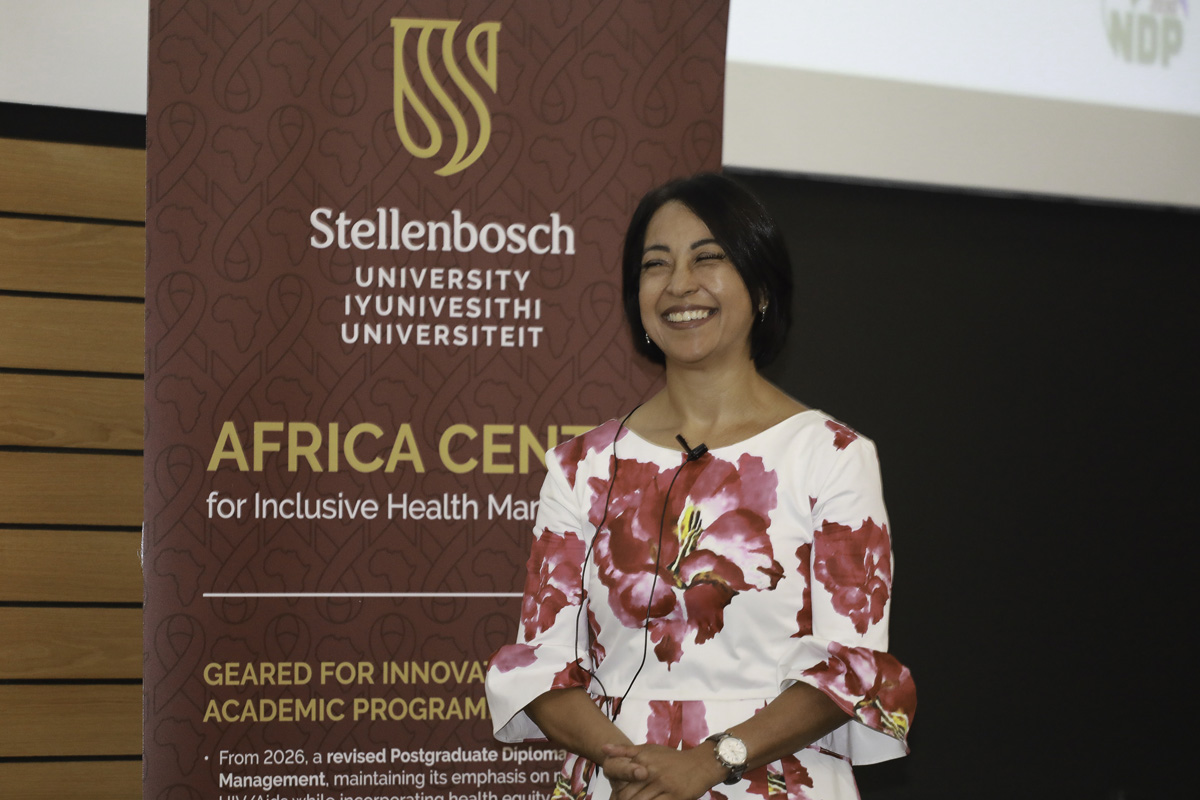
Dr Rolene Wagner from the Eastern Cape Department of Health shared lessons from effective community involvement.
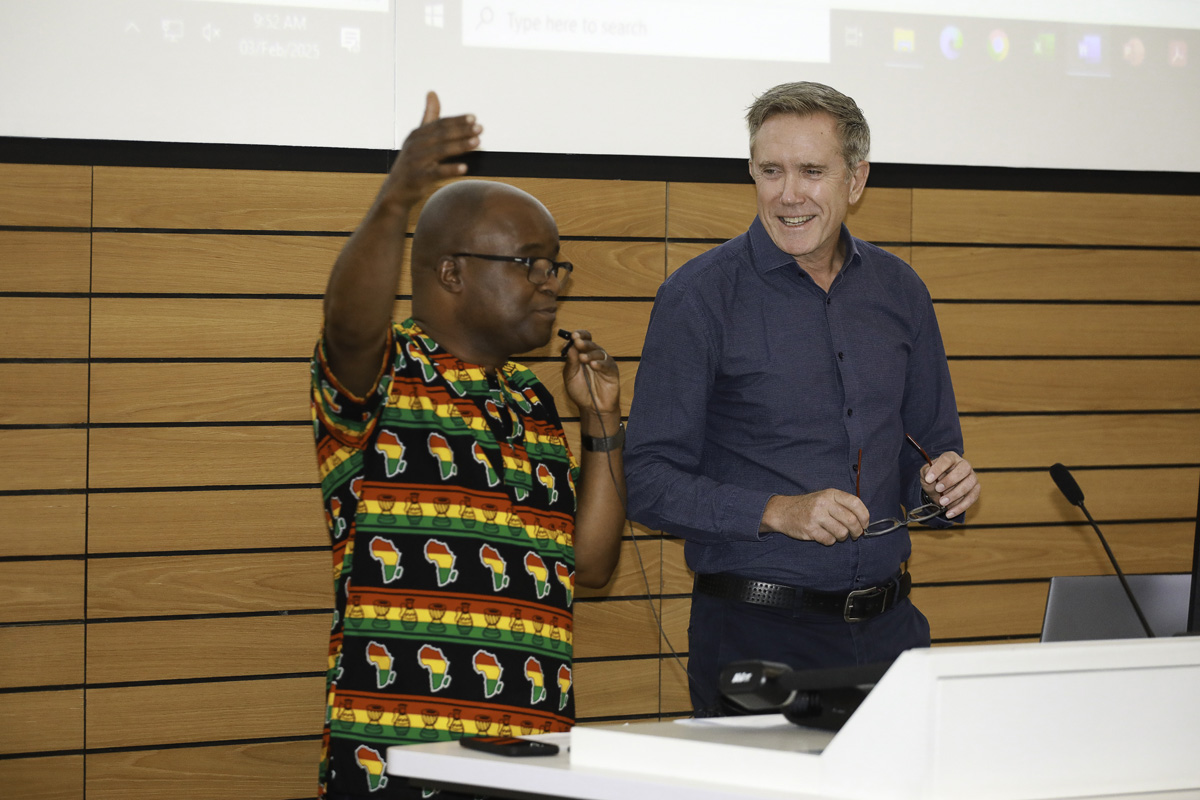
Dr Munya Saruchera introduces keynote speaker Dean Peacock from Sonke Gender Justice.
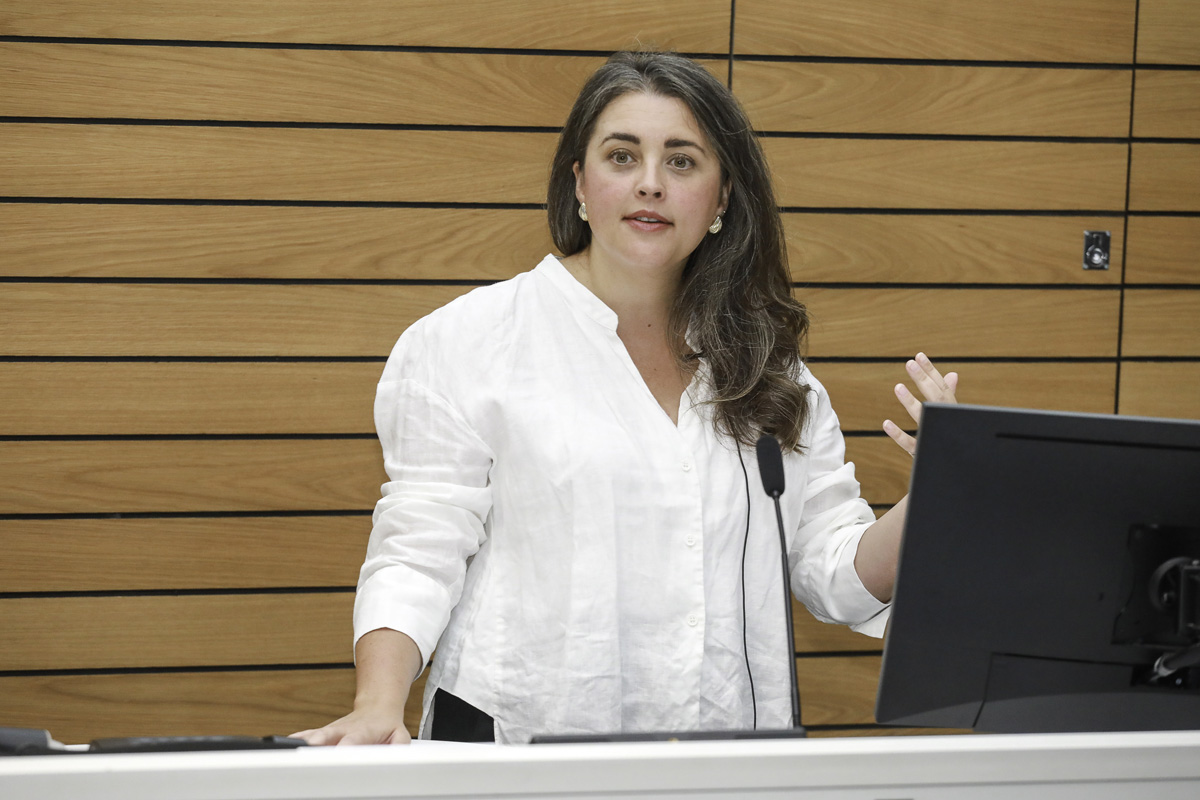
Katusha de Villiers from the Bertha Centre focused on the role of young people in social health innovations.
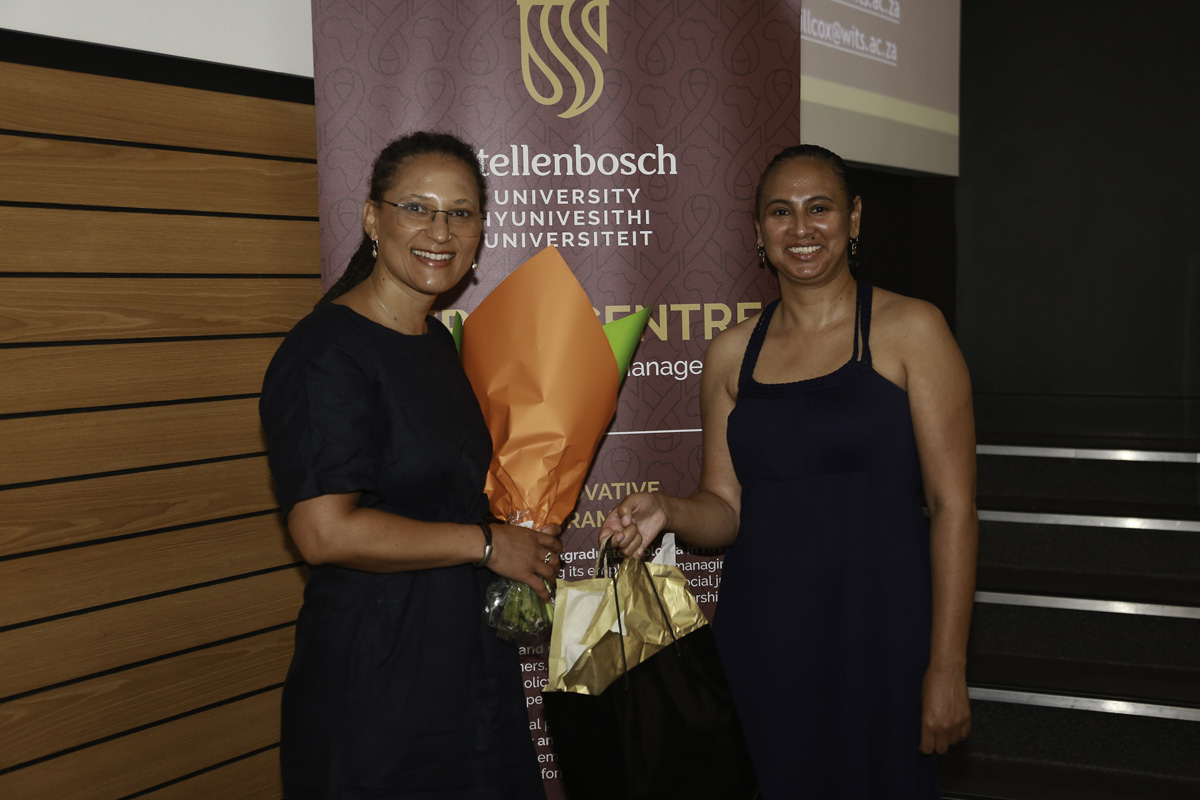
Thoko Madonko gave a straight-talking presentation on the impact of austerity budgeting on the public health system.
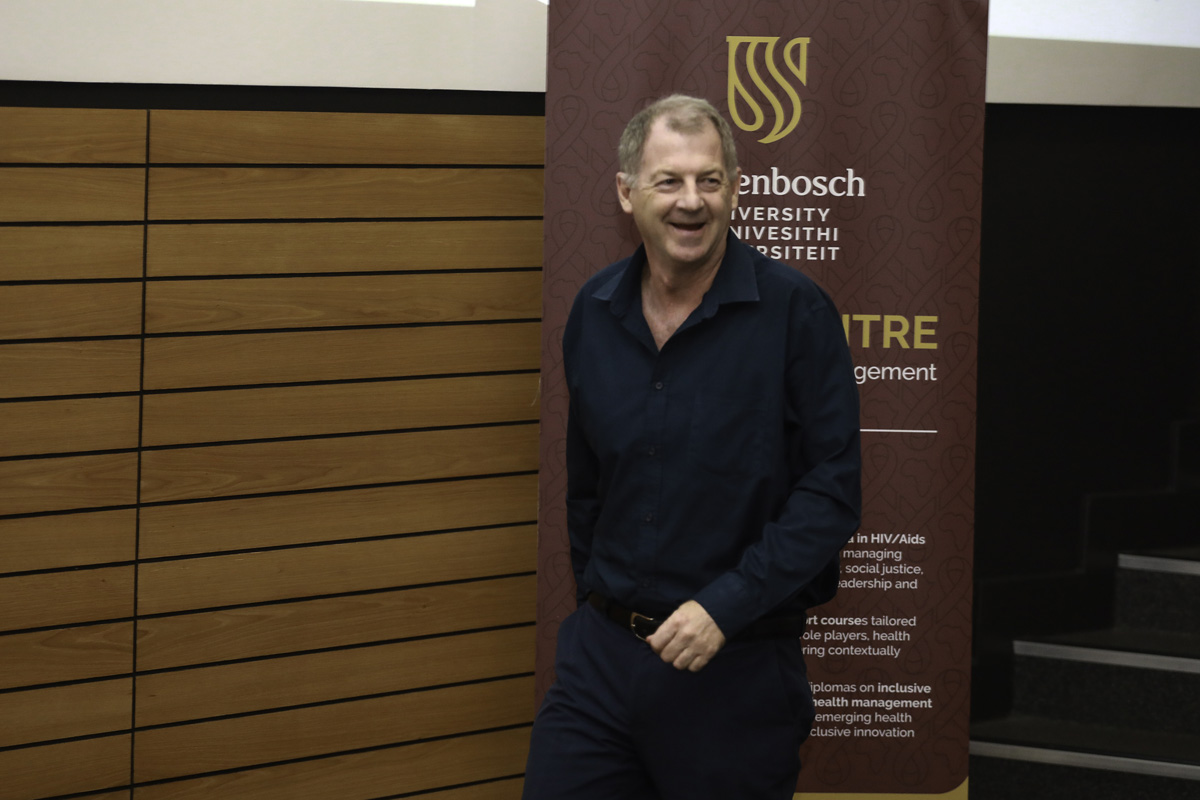
David Harrison presented a sobering talk on innovative pricing instruments and the DG Murray Trust’s alcohol harms reduction campaign.
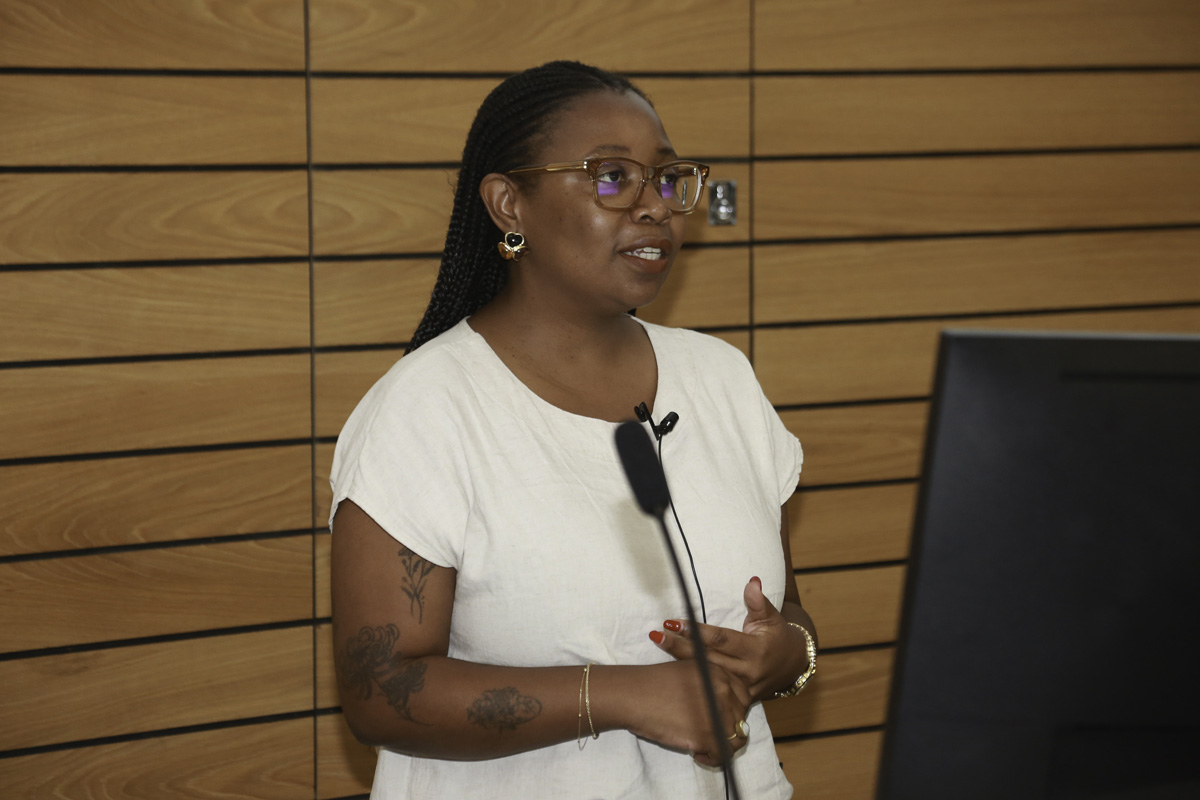
Zukiswa Zimela had the class glued to their seats with her session on non-communicable diseases, health promotion levy, sugar tax and front-of-package labelling campaigns.
Our other summer school lookback blogs are on the HIV/Aids-related sessions and academic services and support.
